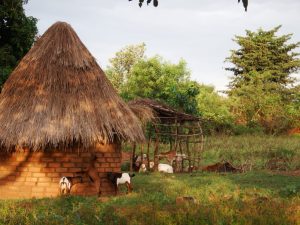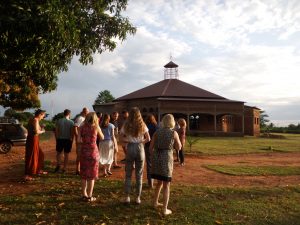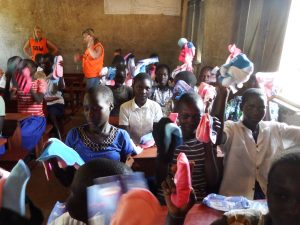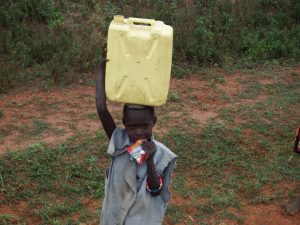By Penny Cook
I have been given the amazing opportunity to take part in some practical public health interventions in rural Uganda, with Teams4U, an organisation with many years’ experience of work with poverty. My aim is to get some insight so that I can plan trips in the future for University of Salford’s public health students.
Day one
Our journey here from Kampala had taken us 5 hours, during which we had glimpsed some of the poverty that is a reality of everyday life in rural Uganda: the roads were dirt tracks; people were pumping and carrying their water; children were dressed in rags; homes were shacks with little in the way of a decent roof.

Day one of the field-work happens to be Sunday. On Saturday night, the leader of our team of volunteers discovered that we were expected to be at a local Church for the 7am service. Thus, at 5.45am we were up, ready to set off at 6.30am. We learned that no practical intervention in the community can happen around here without the involvement of the church–it is the hub of the community, and it serves as a means to spread practical messages to the local people. The priest will be working with us all week in the various schools that we will be visiting. The church service lasted 2 hours, during which we had to get up at the front and introduce ourselves to a few hundred people. It was through the church that the community had been told about our visit, and invited to one of the local schools for a day of fun and activities.

Games
By 10am we were at the school. Being a Sunday, we were uncertain of how many people would turn up. In a very well organised operation we started to play team games with the children. There were hundreds. We did the games with batches of 8 children (for each of the 14 team members). We did this 3 times–first with some smaller boys (aged 5 to 12), then with girls (9-14) and then with some older boys (10-16). The games all involved running up and down, sometimes with a ball. They varied in each set, depending on age and gender; for example, games were more complicated for the older ones, and we had been warned that girls often did not own underwear, so we did not do any games involving somersaults. We were on the field without a break for nearly two hours, in the heat: absolutely exhausting but really good fun.
The games served as a draw to the local community, and while the fun was going on, adults were being tested for HIV, and if needed, able to obtain antiviral drugs straight away. We now also had the opportunity to do some basic health interventions with the children, after the games were over.
‘Develop with dignity’ intervention
Sanitation is very poor at this school. There is no water and open pit latrines. Once the girls have started their monthly menstrual periods, the lack of facilities, and lack of any means to manage their periods causes them to leave school for a few days each month. Girls typically manage their period using rags to absorb the blood. Fear of soiling clothing and embarrassment keep them away from school, causing them to miss up to quarter of their education. The aim of our intervention was to explain some basic facts about puberty, sex and management of menstruation. The highlight of the intervention is when we supply the girls with their own pack of re-usable, washable ‘Afripads’, and knickers to hold the pads in place. We also had a sack of donated bras, which the girls were absolutely delighted with!

As we left the school, children squabbled over our empty water bottles, which appeared to be a much sought after prize, reminding us how much we have and how much we take for granted. When we saw small groups of children we were able hand out little toys and gifts.

See the next blog post on my Uganda trip here.


3 thoughts on “Public health interventions in Uganda”
Comments are closed.